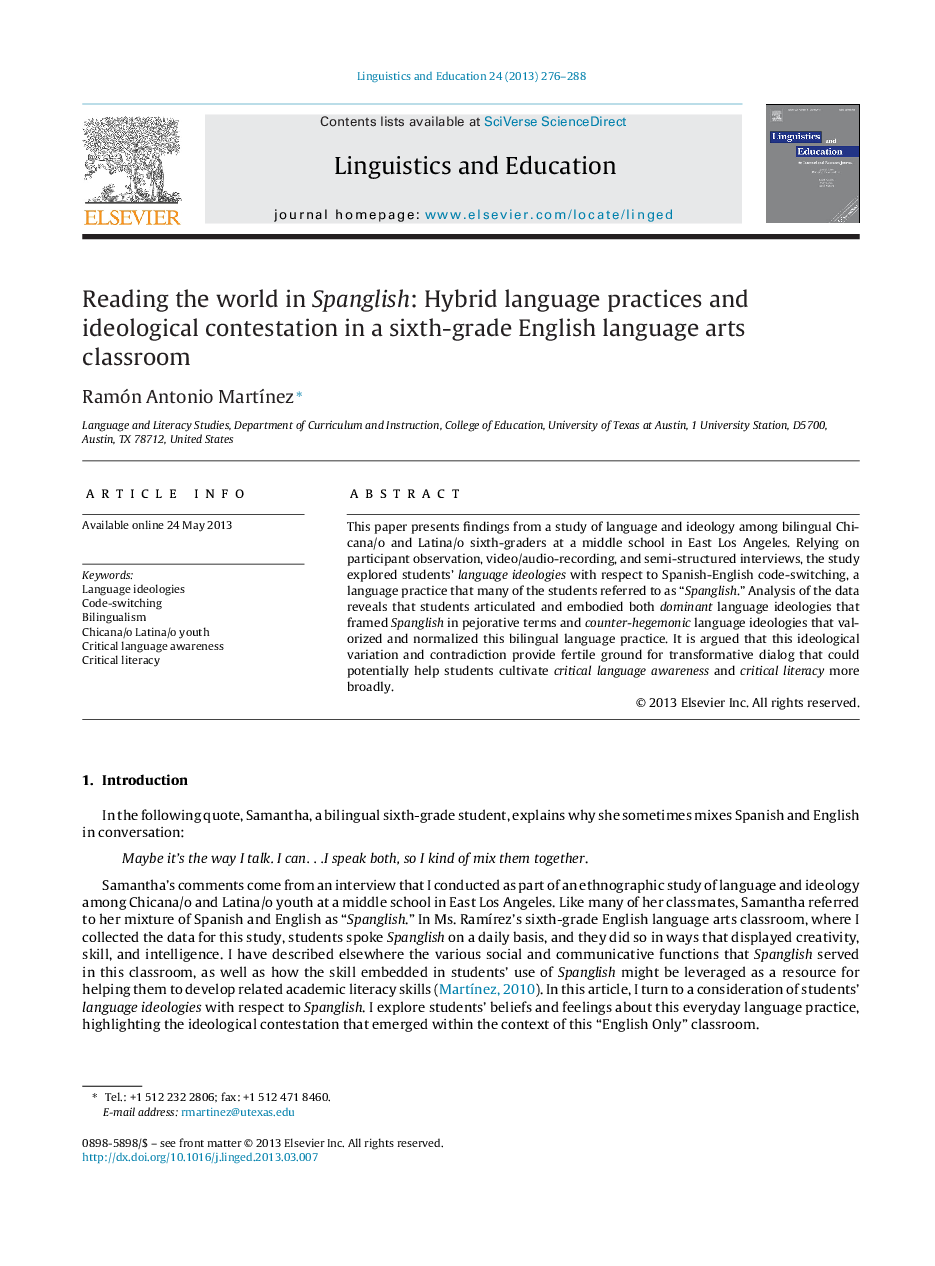| Article ID | Journal | Published Year | Pages | File Type |
|---|---|---|---|---|
| 366257 | Linguistics and Education | 2013 | 13 Pages |
•Language and ideology were explored in a sixth-grade English only classroom.•Students articulated and embodied both dominant and counter-hegemonic language ideologies.•This ideological contestation might be leveraged to promote critical literacy.
This paper presents findings from a study of language and ideology among bilingual Chicana/o and Latina/o sixth-graders at a middle school in East Los Angeles. Relying on participant observation, video/audio-recording, and semi-structured interviews, the study explored students’ language ideologies with respect to Spanish-English code-switching, a language practice that many of the students referred to as “Spanglish.” Analysis of the data reveals that students articulated and embodied both dominant language ideologies that framed Spanglish in pejorative terms and counter-hegemonic language ideologies that valorized and normalized this bilingual language practice. It is argued that this ideological variation and contradiction provide fertile ground for transformative dialog that could potentially help students cultivate critical language awareness and critical literacy more broadly.
